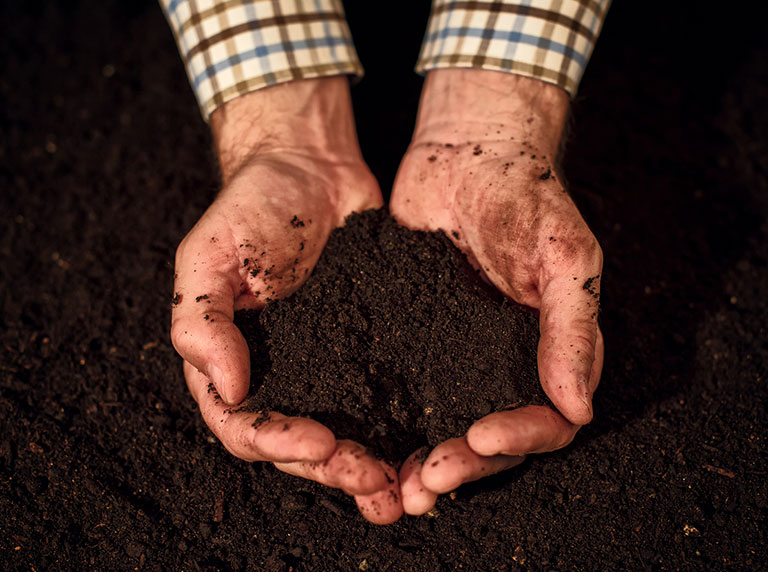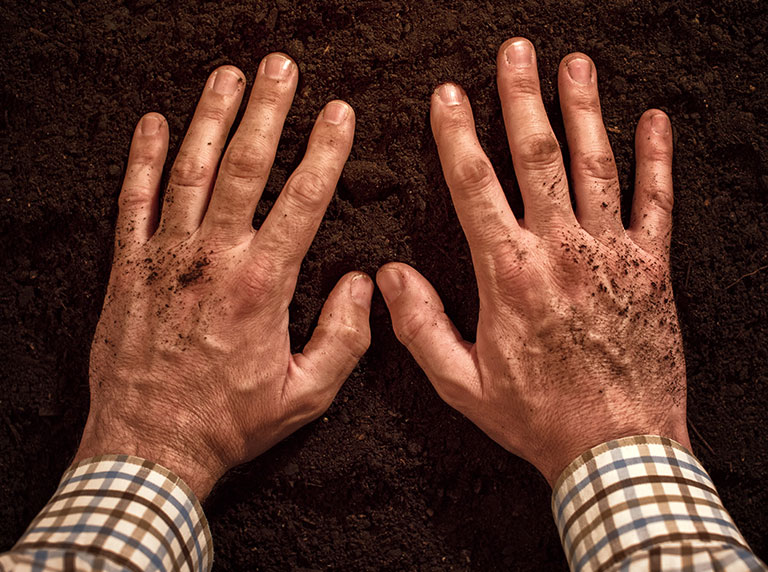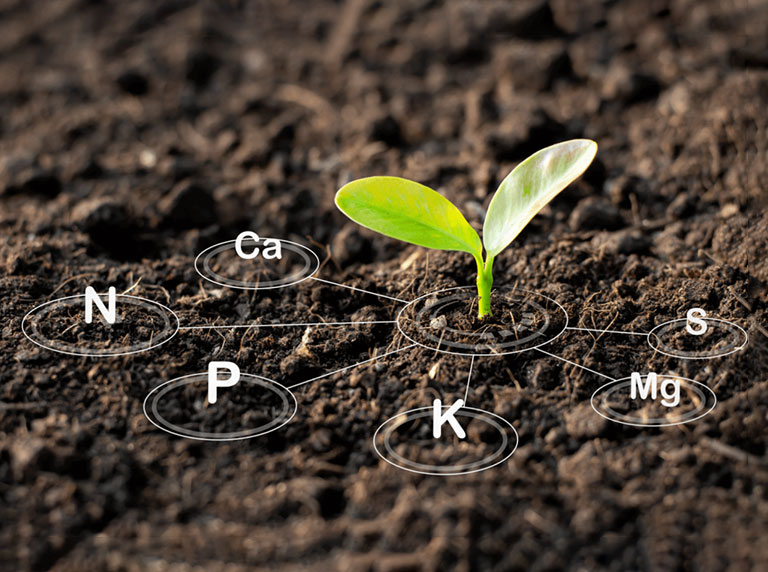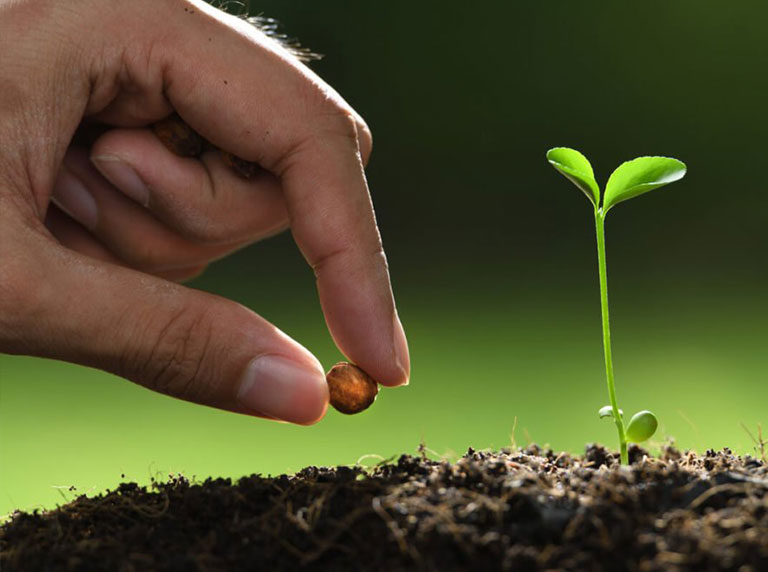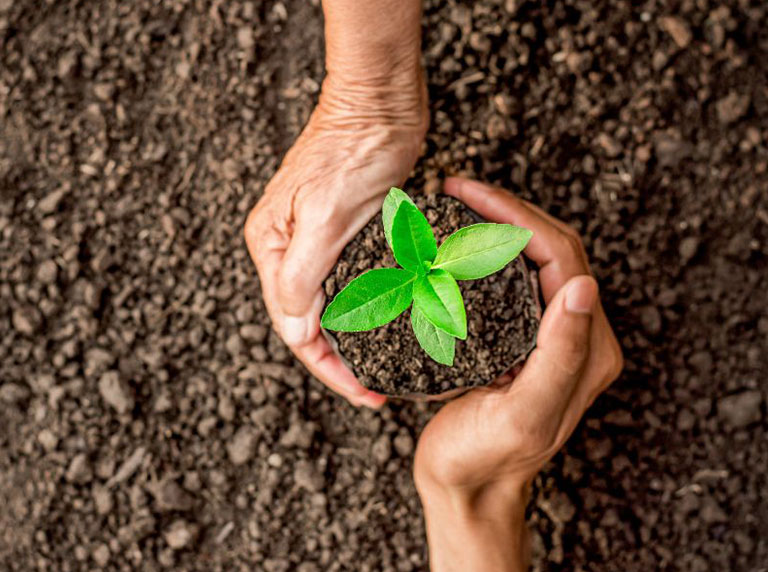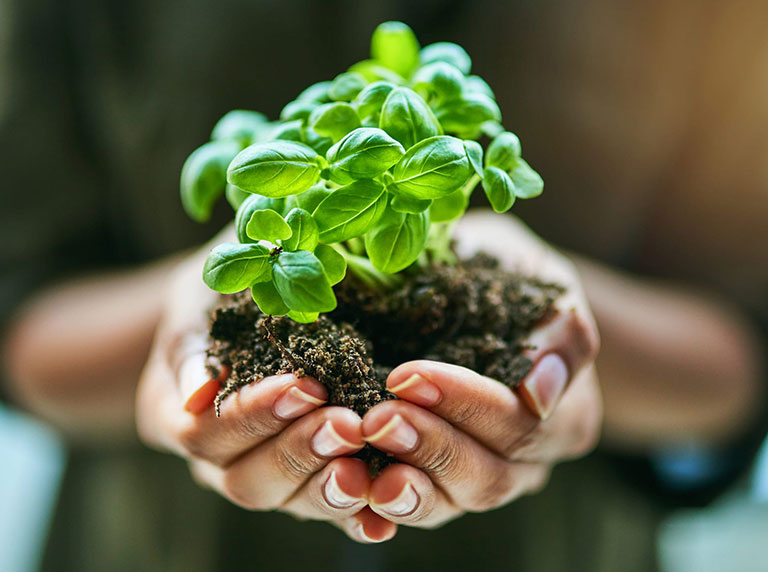Compost Products
Supporting our customers on their way to a more sustainable future, we offer two types of compost products: super compost and premium compost.
- Home
- Compost Products
What is Compost?
Compost is the product resulting from the controlled biological decomposition of organic material that has been sanitised through the generation of heat and stabilised to the point that it is beneficial to plant growth. Compost bears little physical resemblance to the raw material from which it originated.
Compost is an organic matter resource that has the unique ability to improve the chemical, physical, and biological characteristics of soils or growing media. It contains plant nutrients but is typically not characterised as a fertiliser.
We provide two types of multi-purpose organic compost; Super and premium. These composts have been processed under controlled conditions to produce a high quality product.
Super compost is a natural product made by mixing, stacking and turning biodegradable materials under managed conditions. The compost sold by A+E has been made wholly from plant materials recycled from parks, gardens and households.
Premium compost is a natural product made by mixing, stacking and aerating biodegradable materials under strictly controlled conditions in an in-vessel composting system with a separate maturation phase. The compost sold A+E has been made from a mixture of food waste from our commercial food waste collections, along with plant materials and organic waste recycled from parks, gardens and households.
How Compost is produced?
Compost is produced through the activity of aerobic (oxygen- requiring) microorganisms. These microbes require oxygen, moisture, and food in order to grow and multiply. When these factors are maintained at optimal levels, the natural decomposition process is greatly accelerated. The microbes generate heat, water vapour, and carbon dioxide as they transform raw materials into a stable soil conditioner. Active composting is typically characterised by a high-temperature phase that sanitises the product and allows a high rate of decomposition, followed by a lower-temperature phase that allows the product to stabilise while still decomposing at a lower rate. Compost can be produced from many “feedstocks” (the raw organic materials, such as leaves, manures or food scraps). State and federal regulations exist to ensure that only safe and environmentally beneficial composts are marketed.
- Natural Composting Process
- pH and microbial action
- Accelerated Version
Compost In-Vessel
It is an accelerated version of the natural composting process where biodegradable waste is fed into large, enclosed chambers with added heat, carefully controlled pH and microbial action to create premium-grade compost in three days. Take a look at the individual steps above.
We also use open windrow composting to recycle purely garden waste. The material is shredded and formed into trapezium shaped piles and then monitored for moisture and turned to aerate over eight weeks. This produces a quality compost which is screened and sold to the agricultural or horticultural industry.
Step 1
Step 2
Step 3
Step 4
Step 5
Step 6
Step 7
Step-8
Step-9
Step-10
Interested in a Specific Service?
Improved Structure
Compost can greatly enhance the physical structure of soil. In fine-textured (clay, clay loam) soils, the addition of compost will reduce bulk density, improve friability (workability) and porosity, and increase its gas and water permeability, thus reducing erosion. When used in sufficient quantities, the addition of compost has both an immediate and long-term positive impact on soil structure. It resists compaction in fine- textured soils and increases water holding capacity and improves soil aggregation in coarse-textured (sandy) soils. The soil-binding properties of compost are due to its humus content. Humus is a stable residue resulting from a high degree of organic matter decomposition. The constituents of the humus act as a soil ‘glue,’ holding soil particles together, making them more resistant to erosion and improving the soil’s ability to hold moisture.
Moisture Management
The addition of compost may provide greater drought resistance and more efficient water utilisation. Therefore, the frequency and intensity of irrigation may be reduced. Recent research also suggests that the addition of compost in sandy soils can facilitate moisture dispersion by allowing water to more readily move laterally from its point of application.
Provides Nutrients
Compost products contain a considerable variety of macro and micronutrients. Although often seen as a good source of nitrogen, phosphorous, and potassium, compost also contains micronutrients essential for plant growth. Since compost contains relatively stable sources of organic matter, these nutrients are supplied in a slow-release form. On a pound-by- pound basis, large quantities of nutrients are not typically found in compost in comparison to most commercial fertilisers. However, compost is usually applied at much greater rates; therefore, it can have a significant cumulative effect on nutrient availability. The addition of compost can affect both fertiliser and pH adjustment (lime/sulfur addition). Compost not only provides some nutrition, but often makes current fertiliser programs more effective.
Modifies and Stabilises pH
The addition of compost to soil may modify the pH of the final mix. Depending on the pH of the compost and of the native soil, compost addition may raise or lower the soil/compost blend’s pH. Therefore, the addition of a neutral to slightly alkaline compost to an acidic soil will increase soil pH if added in appropriate quantities. In specific conditions, compost has been found to affect soil pH even when applied at quantities as low as 10-20 tons per acre. The incorporation of compost also has the ability to buffer or stabilise soil pH, whereby it will more effectively resist pH change.
Provides Soil Biota
The activity of soil organisms is essential in productive soils and for healthy plants. Their activity is largely based on the presence of organic matter. Soil microorganisms include bacteria, protozoa, actinomycetes, and fungi. They are not only found within compost, but proliferate within soil media. Microorganisms play an important role in organic matter decomposition which, in turn, leads to humus formation and nutrient availability. Microorganisms can also promote root activity as specific fungi work symbiotically with plant roots, assisting them in the extraction of nutrients from soils. Sufficient levels of organic matter also encourage the growth of earthworms, which through tunnelling, increase water infiltration and aeration.
Suppresses Plant Diseases
Disease incidence on many plants may be influenced by the level and type of organic matter and microorganisms present in soils. Research has shown that an increased population of certain microorganisms may suppress specific plant diseases such as pithier and fusarium as well as nematodes. Efforts are being made to optimise the composting process in order to increase the population of these beneficial microbes.
Providing Value To Our ClientsThrough Ongoing Product & Innovation.
While improving the yield and performance of solar energy products, our PV industry experience enables us to provide in-depth material sourcing, financing and supply chain expertise for every step.
Raw polycrystalline silicon for PV manufacturing. Offered in various grades and formats including chunks, chips, powder and ingot.
Save Your Money
Home Is Energy
Consult & Planning
Certified Engineers
Home Is Energy
A Leading Supplier of Compost Products in Cyprus
Premium Compost
- Beneficial soil micro-organisms
- Reduced nutrient leaching
- Better soil structure
Super Compost
- Nutrient recycling
- Soil-aggregation
- Reduced erosion risk
Improves the
soil structure
Increases infiltration and permeability
Improves water holding capacity
Supplies nutrients & organic matter.
Improves (CEC)
Suppress plant pathogens
Sustainable, reliable & affordable organic recycling & soil management solutions, Contact Us Now!
As a world wide distributor of solar supplies we endeavor provide fast and knowledgeable service, we can get all the materials you need by sea or air.
- Emergency Line: (002) 01061245741
- Location: Brooklyn, New York, USA
- Mon - Fri: 8:00 am - 7:00 pm
Years Of Experience In
The Solar Industry
Customers Doing it Their Way!






